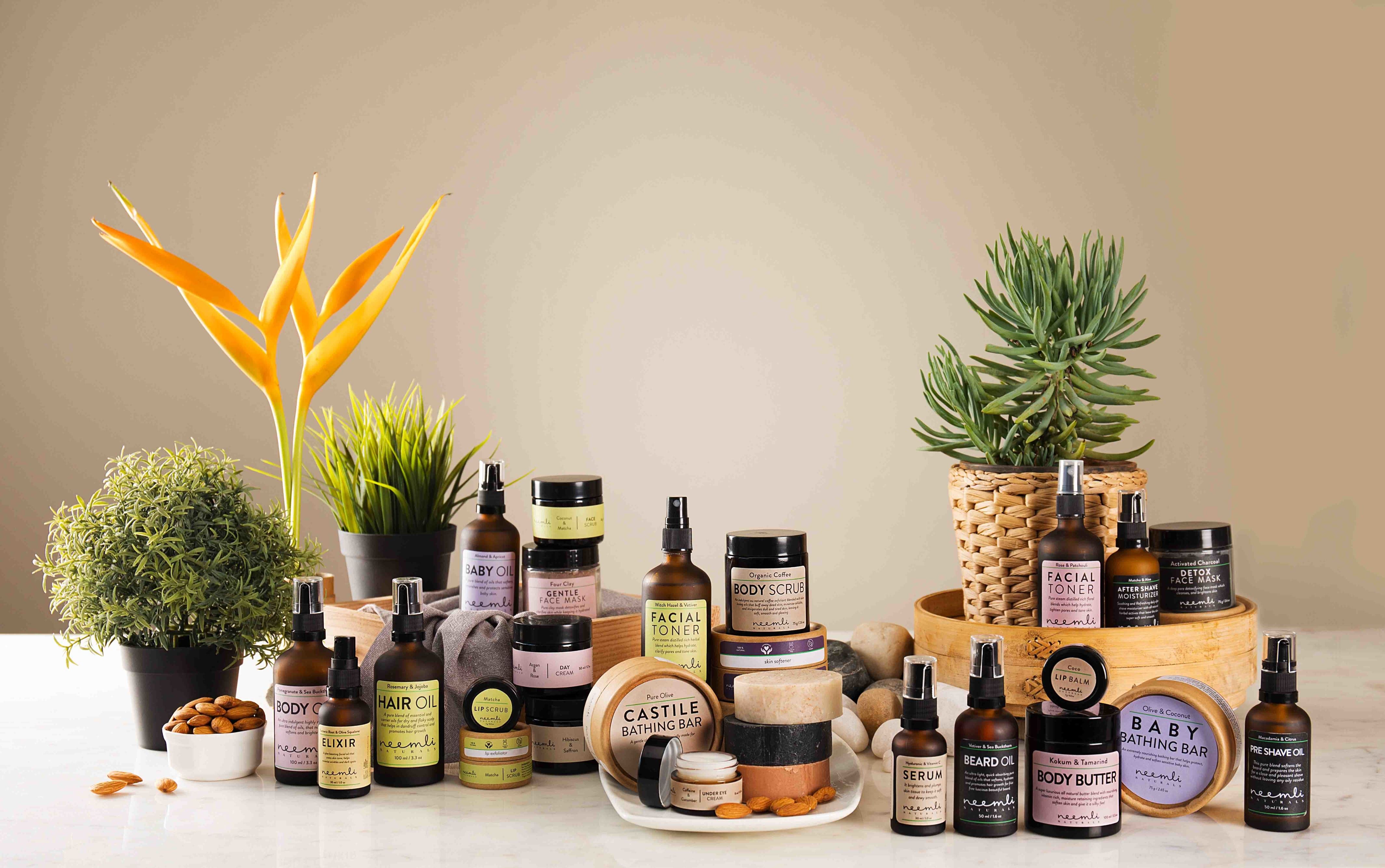commerical
The Benefits of Switching to Organic Skincare Products

In a world where beauty standards are continually evolving, skincare has become an essential part of daily self-care routines. As more people become conscious of what they put on their skin, the demand for organic skincare products has risen significantly. But what makes organic skincare so special, and why should you consider making the switch? Let’s explore the deeper, often overlooked benefits of transitioning to organic skincare and how it can impact not only your skin but also your overall well-being.

1. Pure and Natural Ingredients
The core reason many individuals turn to organic skincare is the purity of ingredients. Organic products are formulated with ingredients that are grown without synthetic pesticides, herbicides, or chemical fertilizers. This means they are free from harmful residues that can potentially irritate your skin or affect your health. For example, organic rosewater or lavender oil is derived from naturally grown flowers, maintaining their full potency and therapeutic properties.
Traditional skincare products, on the other hand, are often laden with chemicals such as parabens, synthetic fragrances, and phthalates, which are absorbed into the skin and can accumulate over time. By using organic products, you are reducing your exposure to these chemicals, allowing your skin to breathe and function naturally without the interference of toxic additives.
2. Support for Skin’s Natural Balance
Organic skincare works with the skin's natural processes rather than disrupting them. Many non-organic products are designed to strip the skin of oils, leading to an imbalance, often causing either dryness or an overproduction of oil. In contrast, organic products aim to support your skin’s natural barrier and hydration levels, promoting a balanced and healthy complexion.
For example, plant-based oils like jojoba and argan oil closely mimic the skin’s natural sebum, allowing them to penetrate and hydrate the skin without clogging pores. Organic products also avoid harsh exfoliants and detergents that can disturb the skin’s delicate microbiome, the balance of bacteria on your skin that protects against harmful pathogens. Organic skincare respects this balance, allowing your skin to thrive and function optimally.
3. Rich in Bioactive Compounds
One of the hidden gems of organic skincare is the concentration of bioactive compounds found in plant-based ingredients. Bioactive compounds such as flavonoids, polyphenols, and alkaloids possess antioxidant, anti-inflammatory, and antimicrobial properties that can improve the overall health of your skin.
For instance, organic green tea extract is packed with polyphenols, which protect against oxidative damage caused by free radicals. Similarly, organic chamomile and calendula have potent anti-inflammatory properties, helping to reduce redness, swelling, and irritation. These compounds not only benefit the skin in terms of appearance but also contribute to its overall health and resilience.
4. Increased Nutrient Density for Skin Regeneration
Organic skincare products are often richer in vitamins, minerals, and essential fatty acids that support skin regeneration and nourishment. Unlike conventional products that may dilute or strip the active components, organic formulations tend to maintain a higher nutrient density.
Take, for example, organic coconut oil. It is rich in medium-chain fatty acids like lauric acid, which have natural antibacterial and antifungal properties. This oil also helps to repair the skin’s moisture barrier and improve elasticity, reducing the appearance of fine lines and wrinkles. Furthermore, organic aloe vera is packed with vitamins A, C, and E, which are essential for skin repair and rejuvenation, promoting a youthful and glowing complexion.
5. Long-Term Skin Health Over Quick Fixes
Organic skincare products prioritize long-term skin health rather than offering quick fixes or instant results. Many conventional beauty products provide a temporary solution to skincare problems, often masking symptoms rather than addressing underlying issues. On the other hand, organic skincare emphasizes treating the root causes of skin problems, whether it’s dryness, acne, or premature aging, by nourishing the skin with vital nutrients.
For instance, while chemical-laden acne treatments may provide a quick reduction in breakouts, they often lead to dryness and skin sensitivity over time. Organic alternatives like tea tree oil, witch hazel, and neem offer gentle yet effective anti-inflammatory and antibacterial benefits, addressing acne while supporting skin health. Organic products promote a balanced, healthy complexion that gets better over time, with fewer side effects and more lasting results.
6. Reduced Risk of Hormone Disruptors
Many conventional skincare products contain endocrine-disrupting chemicals (EDCs) like parabens and phthalates, which are linked to hormone imbalances, reproductive health issues, and even increased risks of certain cancers. These chemicals mimic hormones in the body, leading to disruptions in the endocrine system.
Organic skincare products, by contrast, avoid the use of these harmful ingredients. They rely on plant-based preservatives, such as vitamin E or rosemary extract, which do not interfere with hormonal balance. Switching to organic skincare helps reduce the risk of EDC exposure, promoting better overall health for those who are concerned about the long-term effects of synthetic chemicals.
7. More Sustainable and Ethical Practices
In an era where environmental sustainability and ethical practices are gaining increasing importance, organic skincare offers a more responsible choice. Many organic skincare brands adhere to sustainable farming practices, use eco-friendly packaging, and ensure that their ingredients are responsibly sourced. This contrasts sharply with many mainstream skincare companies that prioritize profit over sustainability.
Choosing organic skincare means supporting brands that value environmental conservation. Many organic skincare products are packaged in recyclable or biodegradable materials, and the use of natural ingredients often reduces the carbon footprint associated with production. Additionally, organic skincare is often cruelty-free, meaning it is made without animal testing, which aligns with more ethical consumer values.
8. Better Absorption and Less Toxic Load
Because organic skincare products are formulated with natural ingredients that the skin can recognize and process, they are often more easily absorbed into the skin. Non-organic products, laden with chemicals and artificial ingredients, may not be as easily absorbed, potentially leading to clogged pores, irritation, and a build up of toxins in the body.
Organic products contain ingredients that are in harmony with the skin’s natural processes, allowing them to penetrate deeper layers without leaving harmful residues. This leads to better hydration, nourishment, and overall skin health, with less toxic load to process.
9. Customizable to Skin Type and Concerns
Organic skincare offers a high level of customization to your specific skin type or concern. Since organic brands tend to focus on simple, natural formulations, they can be tailored to suit any skin type—from oily and acne-prone to dry, sensitive, or aging skin. Organic ingredients like rosehip oil, vitamin C, and hyaluronic acid can be combined in a variety of ways to address specific concerns, giving you the flexibility to create a routine that best suits your needs.
For those with unique or complex skin concerns, many organic skincare products offer targeted solutions that focus on repair and maintenance without introducing new irritants. This makes organic skincare not only a safer option but also a more effective one, as it’s built around the individual needs of your skin.
10. Promotes a Holistic Beauty Philosophy
Organic skincare aligns with a holistic approach to beauty, which emphasizes the interconnectedness of the body, mind, and environment. By choosing organic products, you are not only taking better care of your skin but also adopting a healthier lifestyle that values sustainability, ethical choices, and overall well-being.
This holistic approach extends beyond skin deep, with many organic skincare products formulated to create a sensorial experience. The use of natural essential oils, soothing textures, and calming fragrances can promote relaxation and mental clarity, enhancing the mind-body connection during your skincare routine.
A Smart Investment in Skin Health and Wellness
Switching to organic skincare is more than just a beauty trend—it’s a conscious, responsible choice for those who care about their health, the environment, and ethical practices. By choosing organic, you’re opting for products that are safer, healthier, and more sustainable in the long run. Whether you’re seeking to balance your skin, combat aging, or avoid harmful chemicals, organic skincare can offer the benefits of natural healing, rejuvenation, and protection. So why not take the plunge and make the switch to organic skincare today? Your skin—and the planet—will thank you.





 Dairy products
Dairy products
 Dry Goods and Essentials
Dry Goods and Essentials
 Fruits and Vegetables
Fruits and Vegetables
 Personal Care
Personal Care
 Healthy Drinks
Healthy Drinks
 Pooja essential
Pooja essential
 Traditional Utensils
Traditional Utensils
 Books
Books






